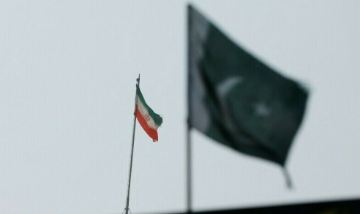Tehran, JAN 27: Nine Pakistanis were killed in Iranian city of Saravan on Saturday, according to Pakistan’s envoy in Tehran, Ambassador Muddasir Tipu.
Iran’s Mehr news agency reported earlier today that “according to witnesses, this morning unknown armed men killed nine non-Iranians in a house in the Sirkan neighbourhood of Saravan city” in the Sistan-Baluchistan province.
The agency added that no group or individuals had claimed responsibility.
The Baluch rights group Haalvash said on its website that the victims were Pakistani labourers, who lived at an auto repair shop where they worked. Three others were wounded, it said.
Reacting to the development, Ambassador Mudassir said: “Deeply shocked by horrifying killing of nine Pakistanis in Saravan. Embassy will extend full support to bereaved families. Counsel Zahidan is already on his way to incident site and hospital where injured are under treatment.We called upon Iran to extend full cooperation in the matter.”
The development occurred a day after Mudassir arrived in Tehran while his Iranian counterpart landed in Islamabad, signalling the full restoration of diplomatic relations between the two neighbouring countries following a brief disruption in ties after Iran conducted strikes on alleged terrorist targets inside Pakistani territory.
Earlier in the day, Mudassir said he was honoured to present his credentials to Iranian President Ebrahim Raisi.
Meanwhile, Iranian Foreign Minister Hossein Amir-Abdollahian will reach Islamabad on Sunday at the invitation of his Pakistani counterpart Jalil Abbas Jilani.
Last week, Iran had launched attacks in Pakistan targeting what it described as bases for the militant group Jaish al-Adl in the border town of Panjgur in Balochistan, Iranian state media reported, prompting strong condemnation from Islamabad and downgrading of diplomatic ties.
Less than 48 hours later, Pakistan struck “hideouts used by terrorist organisations namely Balochistan Liberation Army (BLA) and Balochistan Liberation Front (BLF)” in Iran’s Sistan-Baluchestan province, in an intelligence-based operation codenamed ‘Marg Bar Sarmachar’.
Iran’s IRNA news agency had reported that nine people were killed in the attack targeting a village in the city of Saravan, with Iranian Interior Minister Ahmad Vahidi saying all the dead “were foreign nationals”. Iran had condemned strikes and summoned Pakistan’s charge d’affaires “to protest and request an explanation from the Pakistani government”.
In Islamabad, the escalation had prompted a high-level meeting of Pakistan’s premier authority on security and foreign policy, the National Security Committee. It was chaired by caretaker Prime Minister Anwaarul Haq Kakar with cabinet members, the chairman of the Joint Chiefs of Staff Committee, the chiefs of the Army, Navy and Air Staff, and other heads of intelligence in attendance.
During the hours-long meeting on Friday, the NSC had ratified the move towards reducing tensions between Pakistan and Iran and underscored a commitment to addressing mutual security concerns.
“The forum (NSC) expressed that Iran is a neighbourly and brotherly Muslim country, and existing multiple communication channels between the two countries should be mutually utilised to address each other’s security concerns in the larger interest of regional peace and stability,” a statement issued by the prime minister’s office after the meeting said.
The NSC hoped that both countries “would mutually be able to overcome minor irritants through dialogue and diplomacy and pave the way to further deepen their historic relations” but at the same time emphasised that any violation, under any pretext, would be met with the state’s full force.
That sentiment was reciprocated by Tehran, whose foreign ministry, in a statement later that day, had said Iran “adheres to the policy of good neighbourliness and brotherhood between the two nations and the two governments”.
These exchanges had subsequently set the stage for a phone conversation between FM Jilani and his Iranian counterpart on Friday.
The two foreign ministers had underscored the importance of collaboration and synchronising efforts at the operational level, with a specific focus on counterterrorism and other mutual concerns. They also committed to de-escalating tensions.
Furthermore, the foreign ministers had deliberated on the reappointment of each country’s ambassadors to their respective capitals, signalling a move towards restoring diplomatic normalcy.
Jilani had also invited Amirabdollahian to visit Islamabad. The Iranian foreign minister, according to the Iranian side, had emphasised that the assurances about security and military cooperation should be seriously pursued.

















